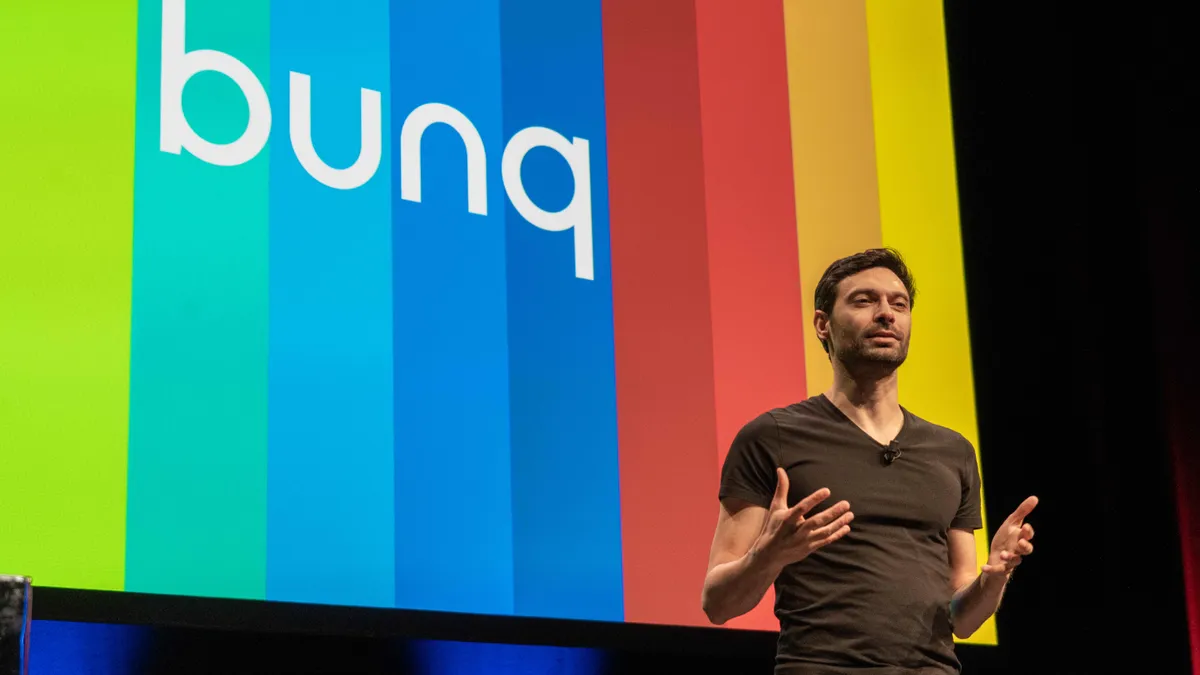Dutch neobank Bunq has pulled back its request for a U.S. banking permit citing problems between its Dutch regulator, the Office of the Comptroller of the Currency and the Federal Deposit Insurance Corp., American Banker reported Wednesday.
After applying for a national bank charter in April, the digital bank waited 301 days in the OCC's application line. A Bunq spokesperson told the outlet in an emailed statement that withdrawing the application was just a procedural move.
The spokesperson clarified there was a “difference of views” that came up during the application process between the regulatory agencies of the two countries, but added that Bunq would soon reapply and that it is "fully committed to resolving all the differences between [Dutch banking regulator De Nederlandsche Bank's] and the FDIC's and OCC's supervisory expectations.”
De Nederlandsche Bank, on its part, told American Banker via email that it couldn’t comment on individual institutions.
“In general we can say that it is good supervisory practice to exchange information between supervisors when an institution from one country (the home country) is or will be active in another country (the host country)," the spokesperson for the Dutch regulator told the publication. "For such purposes we also have [a memorandum of understanding] with the OCC.”
The OCC and the FDIC declined to comment to American Banker on the application.
While waiting for the banking charter, CEO Ali Niknam told Banking Dive in August that the firm’s conversations with U.S. bank regulators are “tough but fair.”
“The dialogue has been very constructive. I think it is very similar to the dialogue we had with the Dutch regulator,” he said at the time. “I’m pretty sure we can iron out any concerns they may have.”
Though Niknam declined to share specific concerns highlighted by the regulators, he said in the past, U.S. agencies have had concerns about the long-term feasibility of some of the neobank’s peers.
“That’s one of the concerns that won’t exist with Bunq because we are profitable,” Niknam noted at the time.
Bunq reported an annual net profit of €53.1 million in 2023. With more than 11 million users in Europe and over €7 billion in deposits, the digital bank announced its plan to reapply for a U.K. license, last month, eyeing global expansion.
Regulatory landscape
The present banking landscape has made it difficult for foreign banks to get approvals for U.S. banking charters. British challenger bank Monzo withdrew its application for a U.S. banking license in 2021 after it got a hint that the OCC likely would not approve it, while Revolut, which announced its plans to enter the U.S. market that same year, has yet to submit a formal application for a U.S. banking charter.
The story is not so different in the domestic market. While some financial institutions get the green light to become a bank, likeSavi Financial or Agility Bank, some scrap the deal, highlighting economic downturn as the reason for doing so, like Connecticut’s first de novo that withdrew its application to launch a bank early last year.
Michele Alt, a former OCC attorney and co-founder of the Klaros Group, told American Banker that no fintech got approval from the OCC after acting Comptroller Michael Hsu took office in May 2021.
“And that's getting to be some time now,” she told the outlet.
The U.S. bank regulators are more hesitant to give green light to startup banks, she noted.
“I think it is evident that the banking regulators are proceeding with extreme caution in allowing the bank formation in the U.S. of any type other than maybe just a plain vanilla community bank,” Alt told American Banker.
However, Federal Reserve Governor Michelle Bowman has called for the bank regulatory framework to be more supportive of startup banks. She noted that preserving and increasing the number of banks should be important from both legislative and regulatory perspectives.
She pointed out that during times of stress like the 2008 financial crisis and the pandemic, smaller institutions often outperform their peers.
“While there has been a slight uptick in de novo formation over the past few years, compared to the years immediately following the 2008 financial crisis, de novo activity has been significantly outpaced by consolidation,” she said in April following the bank failures in March.











